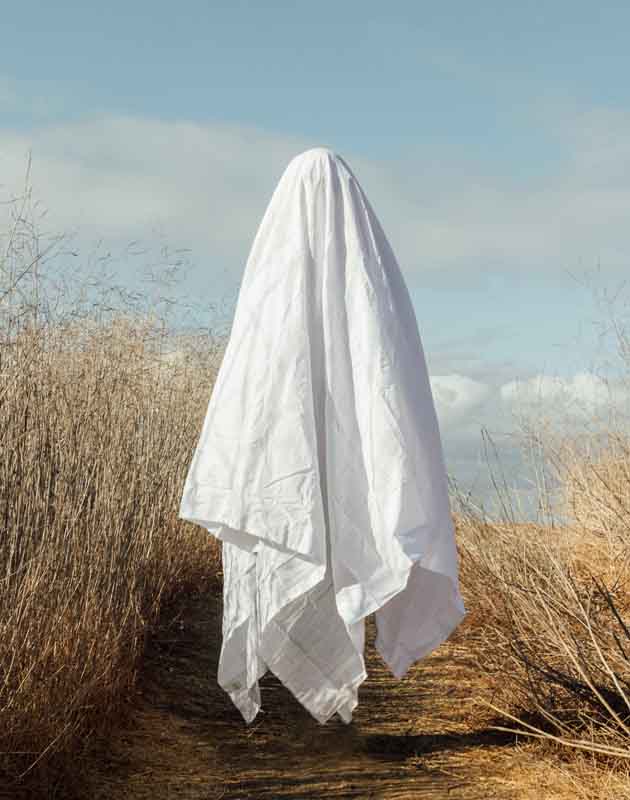In 1979, around the time horror rock legends The Misfits were singing “I remember Halloween” while dressed in skeleton suits, I was rattled by anticipation tremors leading up to Oct. 31.
Aged nine, I had my monster mask, ripped clothes and fake blood, and was in the backyard at twilight “playing” with friends, as we called it back then.
I became inspired—which means “in spirited”—to play a game called Skeleton that would lead us into the magical world of Hallow’s Eve. The only problem was I couldn’t figure out what the game should be, beyond simply hide-and-seek in costume. I’ve clearly filed the episode in my long-term memory as an epic fail of the imagination.
There’s not a ghost of a chance of such a failure now, of course, since everyday life increasingly resembles a dystopian horror flick through which we’re all forced to live. And you don’t even need your imagination, which has anyway been bludgeoned into passive submission by every aspect of digital life.
All you have to do is go outside and witness the ragged clothes and soulless stares of the walking dead zombie automatons whose consciousness is no longer anchored in the here and now of physical reality. Nor is it connected to higher realms via the divine gifts of reason, will and imagination.
Instead, it has been sucked into the netherworld of their smartphone, a device whose ironic moniker never fails to elicit a hearty laugh from the Prince of Darkness himself, who loves spreading stupidity. This is especially true concerning his own existence, since the devil’s greatest ruse, noted Baudelaire, is convincing you he doesn’t exist.
In 1979, we didn’t go quite so overboard with Halloween decorations. Pumpkins on the porch was it, and only on the 31st, not three-and-a-half weeks beforehand.
We who live on the razor’s edge between this world and the other have been forced to conclude that the rise of Halloween mania is a phenomenon of the past two decades, and therefore a reaction to the rise of digital culture, which, in the spirit of the season, is so deliciously dehumanizing. So once a year, we take a month to cosplay the supernatural, hanging ghosts over our front steps and crafting mock graves on our lawns, from which skeletal ancestors seem to rise and shriek, “What have you done?”
It is perfectly in keeping, in fact, with the ersatz and counterfeit nature of modern life that we prefer to ironically play-act supernatural reality rather than face it head on in the dark caverns of the psyche. Modern life has so body-snatched us that a 2014 study—that’s before Donald Trump, COVID, war and inflation—that was recently discovered and went briefly viral, revealed that two-thirds of adults would rather endure 15 minutes of electric shocks than have to sit along with their thoughts.
Before the past three centuries, when the rise of scientific reason joined Christianity as a strange bedfellow to gradually exterminate all sense of metaphysical reality, the supernatural was felt as a real and living presence capable of being experienced and understood by anyone with the proper qualifications, which simply meant the intelligence and will to embark on the path of initiation, or awakening of higher consciousness.
But our predecessors actively sought out times of reflection, like watching the sky grow slowly dark on a cloudy autumn evening, and their divine gifts of reason, will and imagination were not atrophied, but instead virile and fertile. And these are the very faculties the Supreme Principle bestowed upon human beings that they might come to know their creator.
And so the mind boggles, as if replaced through some sinister Frankenstein experiment, why anyone would settle for horror movies and monster toys when you can actually live supernatural reality, when you can read Paracelsus by candlelight rather than Stephen King, and make legitimate tears in the veil between worlds.
The traditions of alchemy and Hermeticism sought to unravel the principles that govern the universe, one of which is the law of equilibrium, which we know as “every action has an equal and opposite reaction.” This is precisely why Halloween mania strikes adepts like a desperate compensating hunger for a loss of connection with higher reality.
Following the “death of God,” Dostoyevsky famously wrote, the concern is not that people will believe in nothing but that they’ll believe in anything, and, if given enough time, will eventually be so demoralized that their sole connection to the sacred is once a year dressing their yard with plastic totems of supernatural forces they suspect are real but can’t be bothered to actually understand.
So let this be your first lesson in the occult sciences: The universe balances itself through invisible, magnetic forces subject to divine law, whose social manifestation we call the zeitgeist. This means the creeping breed of soulless phone-drones will eventually be opposed by a new race of metaphysical action heroes, who’ll start out by LARPing (that stands for Live Action Role Play), then eventually come to realize that they are indeed the priestesses and wizards of the apocalypse.
“Be careful what you wish for” is another chilling bit of folk wisdom trotted out by some toothless oldster from a creaking rocking chair. I finally got my childhood dream, in which every day feels like Halloween. But to paraphrase those great punk-goth rockers The Misfits, you think you’re a zombie? You think this is a scene from some monster magazine?
Open your eyes: This ain’t no fantasy, boy.






